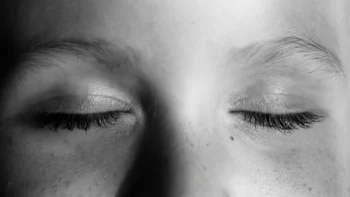Did you know your eyes work the same way as a camera? They capture light and send the images to get “developed” in your brain. Your eyes have more than two million parts that work together to bring you vision. This includes over 1 million nerve fibers that transmit information from your eyes to your brain. Your eyes are important and complex. You need the best care possible when something isn’t quite right with your eyes.
What are Cataracts?
Cataracts are an eye condition that typically happens as you age. They make your vision appear foggy or frosty. Cataract causes are simple. It is caused by proteins in the eye breaking down. It is usually a normal byproduct of getting older, but sometimes an injury or genetic condition can cause this breakdown as well.
Cataracts affect the lens of your eye. This important component sits behind your iris (the colored part of your eye). The lens takes in light and helps you to form clear images to send to your brain for processing. When you are younger, the lens is more flexible and thinner. As you age, it thickens and becomes stiffer. The proteins in the lens break down over time and clump together, causing clouded vision.
The symptoms of cataracts include:
- Cloudy vision
- Difficulty seeing at night
- Light sensitivity
- Seeing halos around lights
- Feeling like your glasses prescription just isn’t working even if you get a new one
- Colors look faded
- Double vision in one eye
- Feeling like you need more light to read or see at night
Cataract symptoms usually come on gradually and worsen over time. They typically develop in both eyes but can develop at different rates in each eye. So one eye may have worse vision than the other.
The main treatment for cataracts is cataract surgery. However, there are lifestyle changes you can make that can help to prevent cataracts, including:
- Quitting smoking
- Drinking less alcohol
- Wearing sunglasses
- Eat a healthy diet with fruits and vegetables
- Manage conditions that can increase the risk of cataracts like obesity, high blood pressure, and diabetes
What is Cataract Surgery?
Cataract surgery is the only treatment available for cataracts. During the surgery, your doctor will remove your damaged lens and put in a new, artificial lens. After the surgery, the artificial lens stays in place forever. It goes in the same place as your natural lens once did. If you have an eye condition that prevents you from getting an artificial lens, your natural lens can still get removed. Once it is removed, you can wear special glasses to correct your vision without a lens inside of your eye.
When you have cataract surgery, you will go into and leave the doctor’s office on the same day. It is an outpatient procedure, and you will need someone to drive you home. Your doctor will use a local anesthetic to numb the area, and you will most likely be awake during the procedure.
Recovery from cataract surgery is generally pretty simple. You may feel some eye discomfort for a few days; you will be fully healed after a few weeks. Most people see major vision improvements just three days after the surgery. Even if your vision is a little blurry after the surgery, you should still be able to read or watch TV.
Cataract surgery has a 99% success rate. After cataract surgery, 95% of people report better vision. Even with these optimistic numbers, you must follow your surgeon’s instructions after the surgery to prevent infection. Wear any eye covering they give you and use the eye drops they provide. Because cataract surgery doesn’t correct vision issues like nearsightedness or farsightedness, you will still need to wear your glasses after surgery if you already had them.
Most people can return to their routines only a few days after cataract surgery.
If you have cataracts in both eyes, your doctor will first do the surgery on the most severely affected one. Then, once that is healed, they will operate on the other eye several weeks later.
When Should You Consider Cataract Surgery?
If your cataracts affect your lifestyle negatively, it may be time to consider surgery. Signs it’s time for cataract surgery include:
- Difficulty reading
- Difficulty driving at night
- Feeling clumsy and bumping into things
- Difficulty seeing your food clearly
- Trouble participating in hobbies you enjoy
- Feeling more dependent on others to help you due to cloudy vision
Luckily, cataract surgery is not an emergency procedure. You can easily plan it around significant life events. If you delay the surgery, for example, to attend a wedding, the outcome will not be any different. If you decide to put off cataract surgery, you will need to visit your eye doctor more regularly to monitor the progression of cataracts.
It’s important to note that cataracts can worsen more quickly in people with diabetes or high blood pressure. So, if you have those conditions, you may want to consider getting cataract surgery sooner rather than later.
In general, cataract surgery improves your quality of life and can give you back some independence. You may be able to drive more safely and reduce your risk of slips and falls.
Who Do You Talk To About Cataract Surgery?
When considering cataract surgery, it’s essential to speak with an eye specialist with the experience and knowledge to make your surgery a success. Brimhall Eye offers expert service with innovative options like dropless cataract surgery, in which your surgeon medicates your eye during the surgery to reduce the need for an eye drop regimen at home. We also offer several options for premium lenses. Your doctor will work with you to find the best option.
We personalize our services for each person who comes into our Las Vegas cataract surgery clinic. We value our patients and give them individualized attention, seeing fewer people per day and spending more time with our patients than other eye care clinics. If you want a personal touch with your cataract surgery, book a consultation for cataract surgery Las Vegas at Brimhall Eye.





